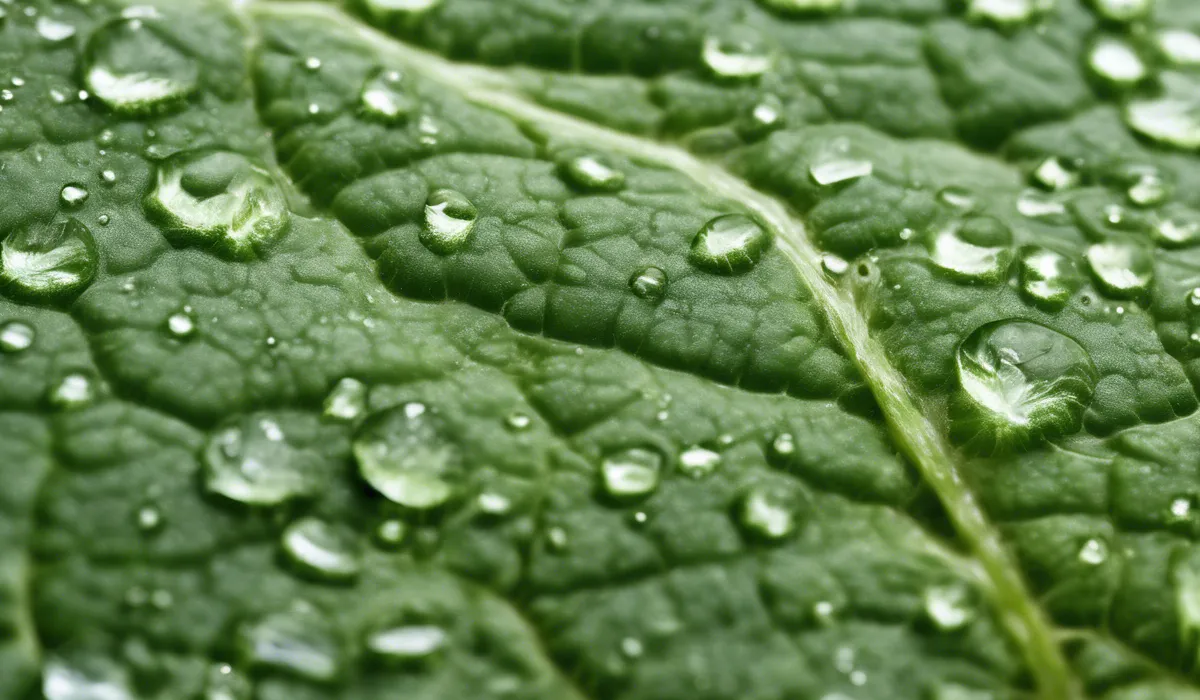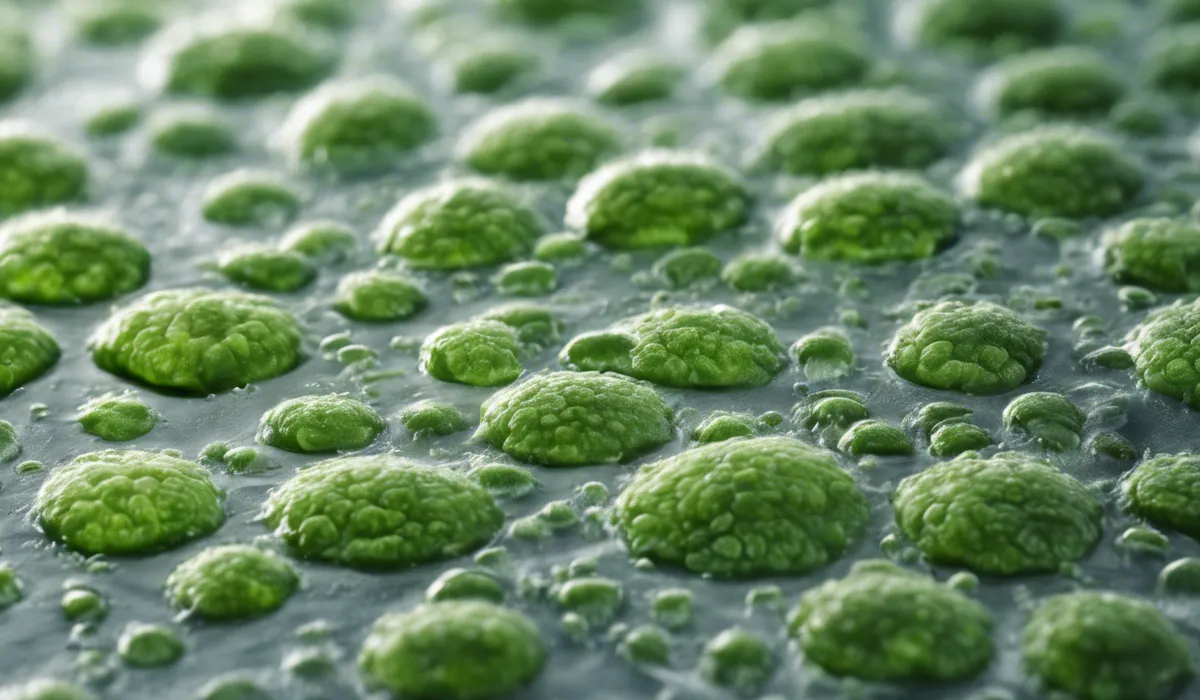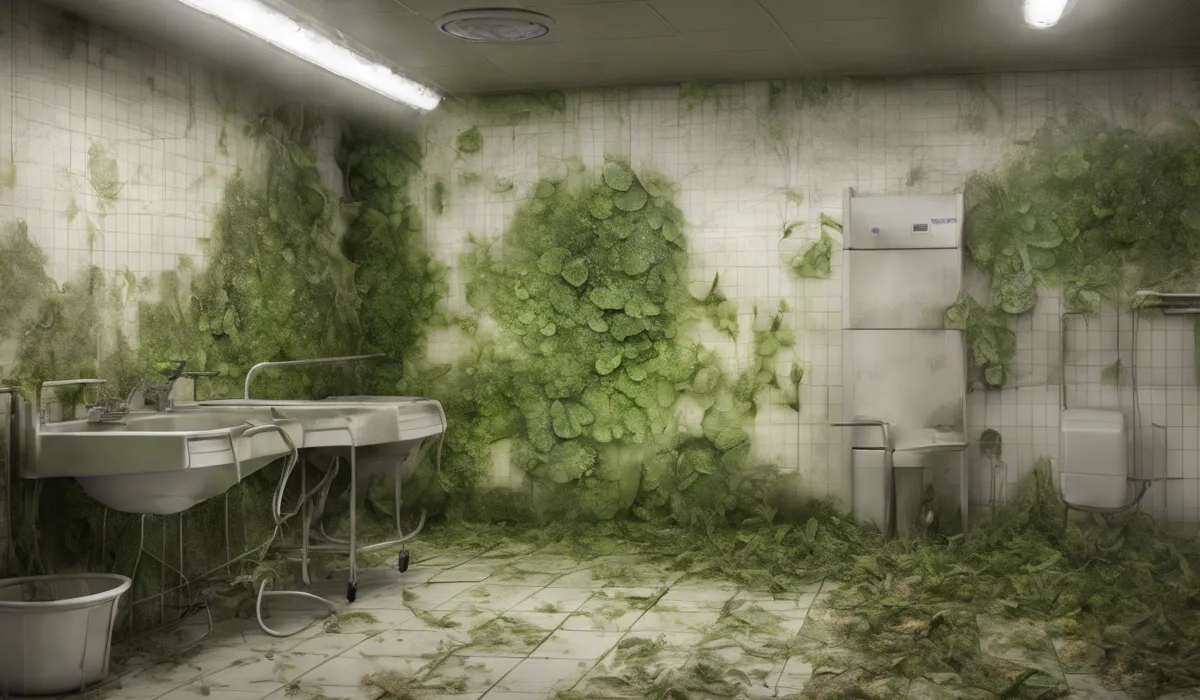Yes, mildew can make you sick. Exposure to mildew can cause respiratory issues, throat irritation, coughing, and headaches. People with allergies or asthma may experience more severe symptoms when in contact with mildew.
Understanding Mildew and Its Health Effects

Defining Mildew and Its Differences from Mold
Mildew is a type of fungus that grows in flat patches, often white or gray. It thrives in damp environments, much like mold, but it differs in appearance and tends to grow on the surface of moist areas, making it easier to clean.
Mold, on the other hand, can penetrate deeper into materials and often appears in various colors like black, green, or red.
Both mildew and mold can cause health issues, but mildew is less invasive than mold.
Common Places for Mildew Growth in Homes
Mildew loves damp places. You might find it in bathrooms, kitchens, and basements. It grows on shower curtains, damp walls, and window sills.
It can also be found on fabric and paper if they are left in humid conditions. Knowing these common spots helps you keep an eye out for mildew at home.
Health Problems from Mildew Exposure
Being around mildew can make you sick. It can cause breathing problems, irritation in your throat, cough, and headaches.
If you have allergies or asthma, mildew might make your symptoms worse. It’s important to take mildew seriously because it can affect your health.
Short-term Mildew Exposure Symptoms
When you first come into contact with mildew, you might sneeze, have a runny nose, or itchy eyes.
Some people get a sore throat or cough. These signs show that your body is reacting to mildew in your environment.
Long-term Health Risks from Mildew
If you’re around mildew for a long time, it can lead to more serious health issues. For example, it can worsen asthma or lead to lung infections in some people.
It’s crucial to deal with mildew quickly to prevent these long-term problems.
The Science Behind Mildew and Illness

The Biology of Mildew
Mildew is a living fungus that grows by spreading its spores. These spores float through the air and land on wet areas, where they start to grow.
Mildew needs moisture and warmth to thrive, so it’s often found in places that are damp and not well-ventilated.
Mycotoxins and Health
Some kinds of mildew can make toxins called mycotoxins. These can be harmful to our health if we breathe them in or if they touch our skin.
They can make us feel sick, and it’s one reason why we need to keep mildew away from where we live and work.
Mildew’s Impact on Indoor Air Quality
When mildew grows, it can make the air inside not good to breathe. The spores and toxins can spread through the air and make it less fresh.
Breathing in this air can make people feel ill, especially if they already have conditions like allergies or asthma.
Who Is at Risk?
Everyone can be affected by mildew, but some people are more likely to get sick from it. This includes children, older adults, and people with weaker immune systems or lung problems.
It’s extra important for these groups to live in places without mildew.
Research on Mildew and Health
Studies have shown that being around mildew can lead to health issues. Researchers are still learning about how mildew affects us and how to stay safe.
What we know for sure is that keeping our homes dry and clean helps protect us from the dangers of mildew.
Prevention and Remediation Strategies

Identifying Mildew at Home
To find mildew, look for patches that are white or gray. Check damp areas like bathrooms and basements.
Sometimes mildew smells musty, so if you smell something odd, it might be mildew. Keeping an eye out helps you catch mildew before it spreads.
Keeping Mildew Away
To stop mildew from growing, keep your home dry and well-aired. Fix leaks and use fans or dehumidifiers in damp areas.
It’s also good to clean regularly and keep things like towels and shower curtains dry. These steps help create a home where mildew can’t grow easily.
Cleaning Mildew Safely
If you find mildew, you can clean it with household cleaners or natural solutions like vinegar. Always wear gloves and a mask to protect yourself.
Scrub the mildew away and dry the area well. It’s important to clean carefully so you don’t spread the spores.
When to Get Help?
If mildew is all over or keeps coming back, you might need a professional to help. They know how to get rid of mildew safely and stop it from returning.
Sometimes an expert is the best choice to make sure your home is healthy.
Protecting Health During and After Mildew Exposure
When dealing with mildew, wear protective gear like masks and gloves. After cleaning, keep the air fresh with fans or air purifiers.
If you’ve been around mildew and feel sick, it’s smart to see a doctor. Taking these steps helps you stay healthy, even after being near mildew.
FAQs About Mildew and Health
Can exposure to mildew cause respiratory problems?
Yes, exposure to mildew can cause respiratory issues such as difficulty breathing, wheezing, and exacerbation of asthma symptoms.
Is mildew harmful to individuals with allergies?
Yes, individuals with allergies may experience heightened symptoms such as sneezing, runny nose, and eye irritation when in contact with mildew.
Can mildew exposure result in throat irritation?
Yes, mildew exposure can cause throat irritation, which may lead to coughing and sore throat.
Are headaches a common symptom after mildew exposure?
Yes, headaches can be a common symptom after being exposed to mildew, often as a part of a wider range of allergic reactions.
What are the effects of mildew on people with asthma?
People with asthma may experience more severe symptoms such as increased asthma attacks, chest tightness, and shortness of breath when exposed to mildew.
Final Thoughts
Mildew exposure is a health risk, particularly affecting the respiratory system. It can lead to symptoms like throat irritation, coughing, and headaches.
Individuals with pre-existing conditions such as allergies or asthma may experience heightened adverse reactions upon contact with mildew.
